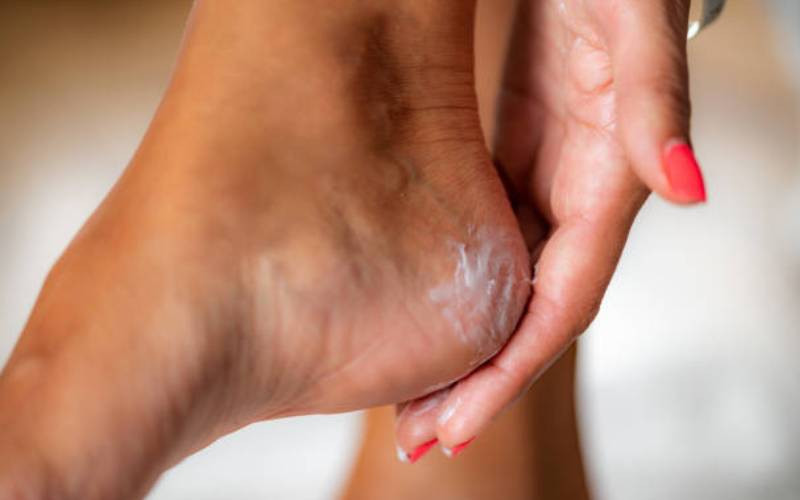
You might not know what it is, but collagen is key when it comes to keeping your skin youthful and wrinkle-free
Collagen is a protein produced by our cells that helps “hold” the skin together, giving it firmness and elasticity.
When we’re young, our skin stays plump and smooth because it constantly regenerates itself.
But as we age, collagen production slows – and existing collagen can get damaged due to sun exposure and bad skin habits. The results? Wrinkles and sagging skin going south.
Luckily, there’s lots you can do to preserve your collagen and even boost its production...
Up your vitamin C intake
A study published in the American Journal of Nutrition found women over 40 with the highest amount of vitamin C in their diet were less likely to develop wrinkles than those who consumed lower levels.
“Vitamin C is crucial to the formation of collagen - without it amino acids can’t be linked to form the protein,” says dietitian Jo Travers ( thelondonnutritionist.co.uk ).
“Good sources are red pepper, dark green leafy veg like broccoli and sprouts, tomatoes, oranges and kiwi fruit.” Skincare that contains vitamin C is also thought to encourage collagen repair (it’s usually listed on the label as L-Ascorbic acid, ascorbyl palmitate or ascorbyl phosphate).
Stop smoking
“Smoking creates enzymes called matrix metalloproteinases (MMPs) which damage the collagen in your skin, hence the tell-tale sagging which many smokers are betrayed by,” says consultant dermatologist Dr Nick Lowe ( drnicklowe.com ).
Stay sun safe
Sun exposure is a prime suspect for hastening collagen loss. “UVA rays penetrate deep into the skin and damage the deep collagen support structures there,” says Dr Lowe.
Reach for retinol
Retinoid creams – only available on prescription – have been proven to help boost collagen production.
“Retinoids reduce substances in the skin that break down collagen after sun exposure and also target receptors in the skin which increase the production of collagen,” says Dr Maria Gonzalez.
Cut back on the sweet stuff
According to Dr Patricia Farris, co-author of The Sugar Detox: Lose Weight, Feel Great and Look Years Younger eating too much sugar can be a beauty disaster.
It causes premature ageing of the skin by a process called glycation. This is where excess sugar in the blood attaches itself to lipids, nucleic acids and proteins (especially your collagen) to form “advanced glycation end products” or AGEs, which accelerate the ageing process and so cause wrinkly skin.
Exfoliate
Exfoliation – removing the top, dead layer of skin – helps speed up the natural process of skin and collagen renewal.
“My favourite way to exfoliate is with chemical exfoliants such as glycolic acid and lactic acid. They dissolve the glue-like substance that bonds dead skin to the surface rather than sloughing it away like scrubs do, and give a more even result, leaving skin looking healthier and more radiant.”
Add antioxidants to your skincare regime
Antioxidants help protect against free radicals that can cause ageing skin.
“The term ‘free radical’ describes a damaged skin cell,” says Amanda. “It’s ‘free’ because it’s missing an electron (healthy cells have two electrons, a damaged cell has one).
“Free radicals attach themselves to healthy skin cells and basically suck out the electrons they need, leaving healthy skin cells damaged.
“This process triggers an enzyme in the skin that breaks down collagen. Antioxidants help by neutralising the free radical so that it doesn’t have to feed off our healthy skin cells.”
Sip on green tea – it contains antioxidants called catechins – and eat foods high in lutein, an antioxidant found in green leafy veg like spinach. Look for creams and serums containing antioxidants too.
Plant proteins, please
The menopause can make us wrinkly because, as we age, our oestrogen levels drop. Because oestrogen is vital to making healthy collagen, creases and crinkles can creep in to our skin.
Lots of foods contain plant oestrogens (phytoestrogens) that can help replace the effects of lost oestrogen. Try hummus, nuts, soy and pinto beans.
Massage
“Massaging your face daily will help boost the production of collagen, give skin a more plump appearance and help stimulate the lymph glands to promote clear skin,” says Nichola Joss, Sanctuary Spa Skincare Expert.
 The Standard Group Plc is a multi-media organization with investments in media platforms spanning newspaper print
operations, television, radio broadcasting, digital and online services. The Standard Group is recognized as a
leading multi-media house in Kenya with a key influence in matters of national and international interest.
The Standard Group Plc is a multi-media organization with investments in media platforms spanning newspaper print
operations, television, radio broadcasting, digital and online services. The Standard Group is recognized as a
leading multi-media house in Kenya with a key influence in matters of national and international interest.



